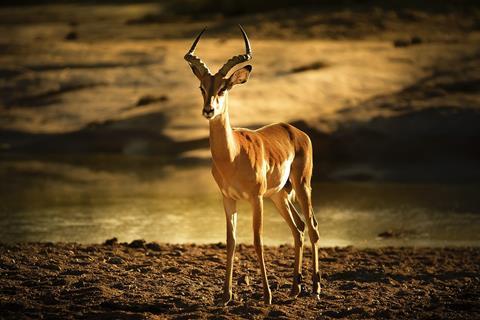Climate change doesn’t just impact the distribution and habitats of wild animals - it can affect their internal environment as well, with implications for biodiversity.
That’s according to a new mini-review that suggests scientists need to look at how the gut microbiome responds to changing climate variables and how this could affect host health.

The paper, ‘Climate change is not just global warming: multidimensional impacts on animal gut microbiota’ has been accepted for Microbial Biotechnology, an Applied Microbiology International publication.
It is an overview of the major findings regarding the effects of numerous climate variables and their interactions on the gut microbiota of animals, and how these factors might affect host animal physiology and fitness, says corresponding author Claire Williams, a doctoral student at the University of Nevada, Reno.
Accurate predictions
“Climate change poses one of the greatest modern threats to biodiversity. It is vital that we are able to build accurate models and make predictions about which species might be most at risk,” she explains.
“Most predictions focus on the animal itself, but gut microbiota – microorganisms that live in an animal’s gastrointestinal tract – can dramatically affect host physiological function and can themselves be climate sensitive.
“Failing to consider the contributions of shifting microbiota toward the persistence of species is a major gap in our current approach to understanding and predicting how animals might respond to climate change.”
Climate variables
The review takes in a number of studies that have already started to evaluate how animal gut microbiota are affected by different climate variables and try to connect changes in microbiota to physiology and ultimately fitness.
“Most work has focused on mean temperature, testing its effects on microbiota and hosts in controlled environments. It is starting to become clear that warming often alters gastrointestinal microbiota, many times affecting similar bacterial taxa, and that this can lead to detrimental outcomes for the host,” Ms. Williams says.
“Other studies have started to assess how larger consortia of climate variables – like seasonal changes – can affect gut microbiota and host physiology. These are often observational studies which attempt to uncover why microbiota change across seasons and how this relates to host function.
“These two types of approaches have helped us to understand that microbiota can respond dynamically to climate variables, and that these changes can affect host physiology.”
Responding to change
The literature has started to reveal how microbiota might be crucial for how an animal responds to environmental change, she says.
“For example, several studies have shown that dietary shifts can induce shifts in host microbiota that might support their hosts’ ability to utilise that novel dietary substrate. Other studies have demonstrated that when microbiota shift due to environmental pressures like heat, this can lead to a loss of physiological function for the host. Clearly, shifts in gut microbiota could both help their hosts cope with environmental change, or exacerbate the effects of these changes.”
Climate change poses an immense threat to biodiversity and in order to conserve and manage species across the globe, it is important that we are able to make accurate predictions about how animals may fare under climate change, Ms. Williams says.
The microbial aspect
“As many aspects of host health are affected by their gut microbiota, ignoring microbial communities when we make these predictions could dramatically affect our conclusions.
“Climate change will result in many simultaneous changes to climate, including changes in temperature, precipitation, seasons, and the frequency of severe weather events. For many climatological variables, we lack a mechanistic understanding of how gut microbiota respond to change and how this might affect host health.
“Much also remains unknown about how the interaction between climatological variables might affect microbiota. For example, does rising temperature interact with decreasing precipitation to alter gut microbiota more dramatically? Does this result in a different implication for the host? These questions remain worthy avenues of future study.”
‘Climate change is not just global warming: multidimensional impacts on animal gut microbiota’ appears in Microbial Biotechnology.







No comments yet